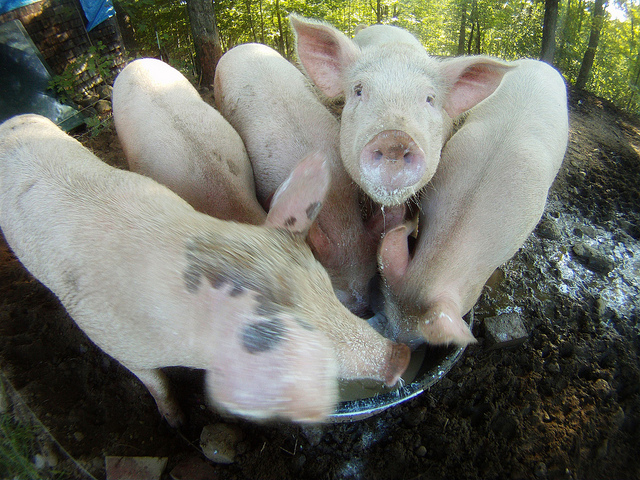Growth Isn’t The Answer
 Most companies have growth objectives – make more, sell more and generate more profits. Increase profit margin, sell into new markets and twist our products into new revenue. Good news for the stock price, good news for annual raises and plenty of money to buy the things that will help us grow next year. But it’s not good for the people that do the work.
Most companies have growth objectives – make more, sell more and generate more profits. Increase profit margin, sell into new markets and twist our products into new revenue. Good news for the stock price, good news for annual raises and plenty of money to buy the things that will help us grow next year. But it’s not good for the people that do the work.
To increase sales the same sales folks will have to drive more, call more and do more demos. Ten percent more work for three percent more compensation. Who really benefits here? The worker who delivers ten percent more or the company that pays them only three percent more? Pretty clear to me it’s all about the company and not about the people.
To increase the number of units made implies that there can be no increase in the number of people required to make them. To increase throughput without increasing headcount, the production floor will have less time for lunch, less time for improving their skills and less time to go to the bathroom. Sure, they can do Lean projects to eliminate waste, as long as they don’t miss their daily quota. And sure, they can help with Six Sigma projects to reduce variation, as long as they don’t miss TAKT time. Who benefits more – the people or the company?
Increased profit margin (or profit percentage) is the worst offender. There are only two ways to improve the metric – sell it for more or make it for less. And even better than that is to sell it for more AND make it for less. No one can escape this metric. The sales team must meet with more customers; the marketing team must work doubly hard to define and communicate the value proposition; the engineering staff must reduce the time to launch the product and make it perform better than their best work; and everyone else must do more with less or face the chopping block.
In truth, corporate growth is the fundamental behind global warming, reduced life expectancy in the US and the ridiculous increase in the cost of healthcare. Growth requires more products and more products require more material mined, pumped or clear-cut from the planet. Growth puts immense pressure on the people doing the work and increases their stress level. And when they can’t deliver, their deep sense of helplessness and inadequacy causes them to kill themselves. And healthcare costs increase because the companies within (and insuring) the system need to make more profit. Who benefits here? The people in our community? The people doing the work? The planet? Or the companies?
What if we decided that companies could not grow? What if instead companies paid dividends to the people do the work based on the profit the company makes? With constant output wouldn’t everyone benefit year-on-year?
What if we decided output couldn’t grow? What if instead, as productivity increased, companies required people to work fewer hours? What if everyone could make the same number of products in seven hours and went home an hour early, working seven and getting paid for eight? Would everyone be better off? Wouldn’t the planet be better off?
What if we decided the objective of companies was to employ more people and give them a sense of purpose and give meaning to their lives? What if we used the profit created by productivity improvements to employ more people? Wouldn’t our communities benefit when more people have good jobs? Wouldn’t people be happier because they can make a contribution to their community? Wouldn’t there be less stress and fewer suicides when parents have enough money to feed their kids and buy them clothes? Wouldn’t everyone benefit? Wouldn’t the planet benefit?
Year-on-year growth is a fallacy. Year-on-year growth stresses the planet and the people doing the work. Year-on-year growth is good for no one except the companies demanding year-on-year growth.
The planet’s resources are finite; people’s ability to do work is finite; and the stress level people can tolerate is finite. Why not recognize these realities?
And why not figure out how to structure companies in a way that benefits the owners of the company, the people doing the work, the community where the work is done and the planet?
Image credit – Ryan
 Mike Shipulski
Mike Shipulski